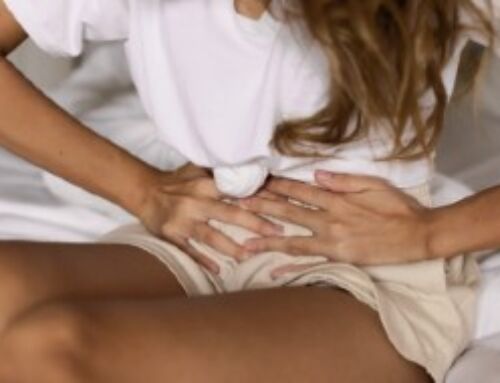Dr. Greg Vigna comments on the Maude Adverse Event Report involving a woman who was implanted with a harmful Prolift device.
On April 5, 2019 MAUDE Adverse Event Report 141104027 involved a woman who was implanted with the Prolift +M Total (anterior and posterior system in 2010). In 2011, she experienced persistent constipation, pain in the buttock, pain in the perineum, vaginal pain, and pelvic pain. In addition the woman had ongoing dysuria and required morphine and psychological follow-up and underwent a sacral neuromodulation in 2013.
Greg Vigna, MD, JD, pharmaceutical injury attorney, practicing physician, and Certified Life Care Planner comments, “Unfortunately for this woman her symptoms are consistent with pudendal neuralgia caused by the Prolift device. The pudendal nerve is in peril both by the four anterior transobturator arms caused by damage to the obturator internus muscle which is adjacent to the pudendal nerve at Alcock’s canal and two posterior arms that are implanted into the sacrospinous ligament which is adjacent to the pudendal nerve.”
“It is inexcusable that the manufacturers do not warn of specific neurological pain syndromes known to be caused by transobturator slings and mini-slings that are showing up in MAUDE reports.” — Dr. Greg Vigna
The symptoms of pudendal neuralgia and pudendal nerve entrapment include the following as described by the Nantes Criteria:
- Pain in the territory of the pudendal nerve from the anus to the clitoris
- Pain is predominantly experienced while sitting
- Pain is relieved by a diagnostic pudendal nerve block
- Burning, shooting, stabbing pain in the perineum
- Pain in the perineum while wearing tight pants/underwear (allodynia)
- Foreign body sensation in the rectum or vagina
- Suprapubic pain, bladder pain, urinary frequency, and urethral pain
- Dyspareunia (pain with sex) before and after
Dr. Vigna adds, “We are filing latent pudendal nerve injury cases caused by transobturator (TOT) slings, pelvic organ prolapse (POP) devices including the Prolift, and mini-slings that insert into the obturator internus muscle. It is inexcusable that the manufacturers do not warn of specific neurological pain syndromes known to be caused by transobturator slings and mini-slings that are showing up in MAUDE reports from the FDA. Clearly, a warning would allow for a more informed consent by physicians and allow for earlier diagnosis and effective treatment when the inevitable neurological pain syndromes occur.”
Dr. Vigna concludes, “Physicians appear to be shifting away from the transobturator device to the retropubic sling, a move that is recommended by Great Britain’s National Institute for Health and Care Excellence (NICE) in April 2019 and in the recent Joint Position Statement on the Management of Mesh-Related Complications by the American Urogynecologic Society and International Urogynecological Association that finally admit nerve entrapment from transobturator polypropylene devices occurs as it is stated that ‘some patients report pain that may be attributed to nerve impingement from the mesh arms that are outside the pelvis (in the groin).’ In addition, we are seeing women with symptom of specific neurological injuries caused by retropubic slings and are filing these cases.”
Dr. Vigna is a California and Washington DC lawyer who focuses on catastrophic neurological injuries caused by transvaginal mesh devices including pudendal neuralgia, obturator neuralgia, and ilioinguinal neuralgia. His cases are filed around the country with Martin Baughman, a Dallas Texas firm. Ben Martin and Laura Baughman are national pharmaceutical injury trial attorneys in Dallas, Texas.
The Vigna Law Group targets the below transobturator (TOT) slings and mini-slings that cause pudendal and obturator neuralgia:
- Ethicon: TVT-O, Abbrevo
- Boston Scientific: Obtryx, Solyx
- Coloplast: Aris, Altis
The Vigna Law Group targets the below retropubic slings that cause ilioinguinal neuralgia, pudendal neuralgia, and Complex Regional Pain Syndrome:
- Ethicon: TVT, TVT-Exact
- Boston Scientific: Advantage Fit, Lynx
- Coloplast: Supris
To learn more on the anatomical basis for TOT injury or irritation to the obturator and pudendal nerve and the treatments of obturator and pudendal neuralgia click here: https://vignalawgroup.com/ebooks/pelvic-mesh-pain/#page=59
Click here for a FREE BOOK on Vaginal Mesh Pain.
For articles, video resources, and information visit the Pudendal Neuralgia Educational Portal or https://tvm.lifecare123.com/.
Click here for information regarding sling related complications.
Podcast regarding the basics of individual litigation from Laura Baughman, Esq.: https://vignalawgroup.com/news/podcasts/
References:
https://www.nice.org.uk/guidance/ng123
http://pudendalhope.info/sites/default/files/NantesDiagnosticCriteria.pdf
https://www.augs.org/assets/1/6/Joint_Position_Statement_on_the_Management_of.99428.pdf
Greg Vigna
Greg Vigna, M.D., J.D.
+1 805-617-0447
email us here
Visit us on social media:
Facebook
Twitter
LinkedIn





